
CityU inaugurates Global Consortium of Metropolitan Universities and holds Presidents
作者:admin浏览次数:900发布时间:2022-12-05 10:39:51
The inauguration ceremony of the Global
Consortium of Metropolitan Universities (GCMU) and the Forum of University
Presidents was held at the City University of Macau on 24 November with
the theme of “Joint Effort to a Shared Success: Sustainable Development of
Universities and Cities”. The event aimed to strengthen cooperation among
member universities and to stimulate multi-dimensional integration and
interaction between universities and cities. It was held online and on-site and
attracted university leaders and experts from over 10 universities in Hong
Kong, Japan, Korea, Macao, Malaysia, mainland China, and Taiwan to take part.Li
Shuying, Executive President of Dongguan City
University, Li Haidong, Director of Human Resources Department, Yang Yonghu,
Director of Teaching and Research Department, and Wei Hang, Deputy Director of
Global Exchange and Cooperation Department, attended the inauguration ceremony
on line.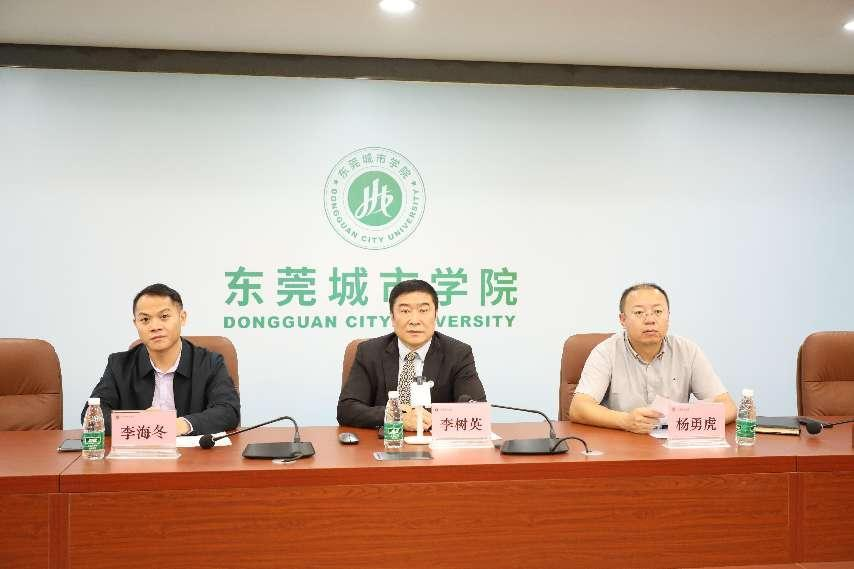
In the morning, the Presidents of the five founding universities of the GCMU Alliance held a closed-door meeting of the first Permanent Council. The meeting discussed the constitution of the Global Consortium of Metropolitan Universities and clarified the nature and operation mechanism of the consortium as well as the work ideas for the next phase. As one of the founding universities of the GCMU, Dongguan City University is the vice-president and its Executive President, Professor Li Shuying, was elected as the vice-president.
Director Xu Ting of the Department of Education and Youth Affairs of the Liaison Office of the Central People’s Government in the Macao SAR, Deputy Director Teng Sio Hong of Education and Youth Development Bureau, Rector Jun Liu of the City University of Macau, and Vice President Gu Hongliang of East China Normal University officiated the ribbon-cutting ceremony.
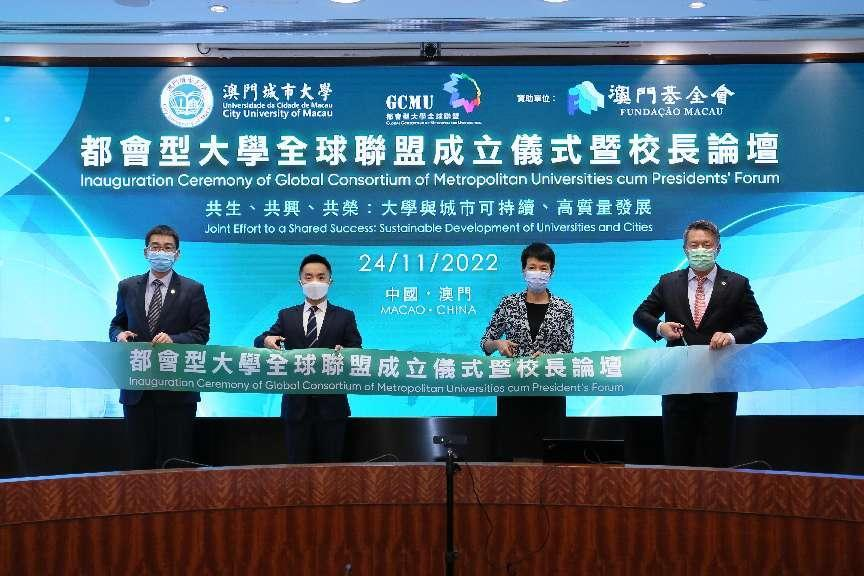
In
his opening address, Rector Liu, founding chairman of the Global Consortium of
Metropolitan Universities (GCMU) Executive Council, said that the Consortium
was initiated by the City University of Macau (CityU) and launched in
collaboration with the Hong Kong Metropolitan University (HKMU), the Shenzhen
University (SZU), the Guangzhou University (GU), and the Dongguan City College.
Rector Liu said, “GCMU
aims to bring together world-renowned metropolitan universities to establish a
global network of innovative, applied, and international metropolitan
universities, promoting comprehensive and sustainable academic exchanges and
cooperation among member universities. Moving forward, GCMU will utilize and
complement the strengths of its member universities, promote resource sharing
and knowledge transfer, and jointly advance the sustainable development of
higher education and their cities.”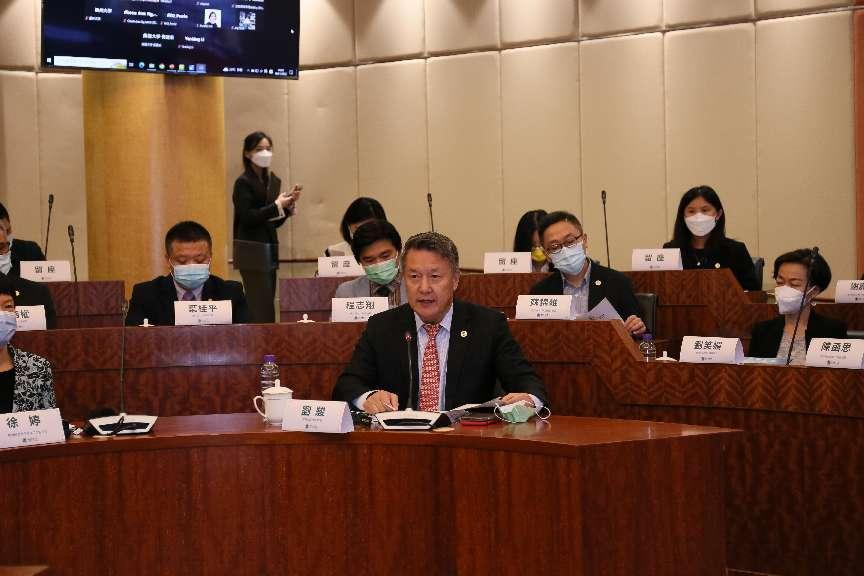
Mr. Teng Sio Hong, Deputy Director of the MSAR Government Education and Youth Development Bureau, congratulated member universities. As he pointed out, metropolitan universities carry distinctive education characteristics which serve social and economic development needs. Talent cultivation and academic strengths will be strengthened through international exchanges and cooperation, spurring global economic and social development. He said that the establishment of the Consortium reflected the needs of universities for high-level international exchange and cooperation and has fully demonstrated the commitment of each member university to nurture talents and to serve the society. He hoped that the member universities will work together to build a broader platform for mutual development and closer cooperation where the higher education sector will meaningfully contribute to a society’s social and economic development.
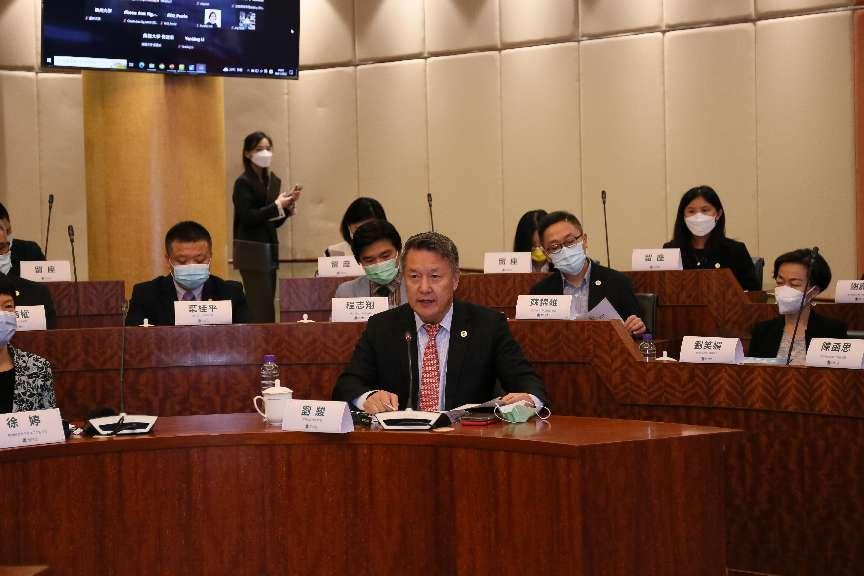
With a theme of “Joint Effort to a Shared Success: Sustainable Development of Universities and Cities,” the Presidents’ Forum invited leaders of the member universities to share their insights on three topics: “Multi-dimensional Integration and Interaction between Universities and Cities,” “Exchange and Innovation of Universities in the Post-pandemic Era,” and “Strategic Collaboration among Metropolitan Universities.” The member universities include East China Normal University (mainland China), Shenzhen University (mainland China), Nantong University (mainland China), Myongji University (Korea), Guangzhou University (mainland China), Hong Kong Metropolitan University, Fuzhou University, Tamkang University (Taiwan), Dongguan City College, Beijing City University, University Tunku Abdul Rahman (Malaysia), and Tokyo City University (Japan).
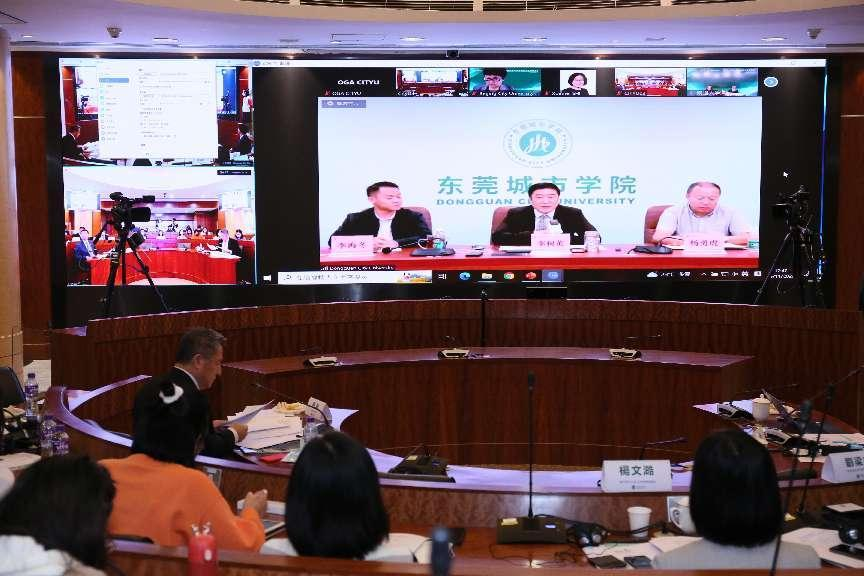
The first session, themed “Multi-dimensional Integration and Interaction between Universities and Cities”, was chaired by Vice President Gu Hongliang of East China Normal University. Vice President Zhang Xueji of Shenzhen University, President Shi Weidong of Nantong University, and Dean Yoon Jongbin of the Office of International Affairs of Myongji University commented on talent cultivation, industry-university collaboration and innovation development, and the collaborative development between universities and cities.
The second session, themed “Exchange and Innovation of Universities in the Post-pandemic Era,” was chaired by Rector Jun Liu of the City University of Macau. Vice President Fu Jiyang of Guangzhou University, Vice President Yang Huanghao of Fuzhou University, Vice President Chen Hsiao-Chuan for International Affairs of Tamkang University, and Director Shi Xuemei (Mainland and International Affairs), on behalf of Provost Kwan Ching-ping of Hong Kong Metropolitan University, shared their thoughts on the topic.
The last session, themed “Strategic Collaboration among Metropolitan Universities,” was chaired by Executive President Li Shuying of Dongguan City University.Professor Li Shuying pointed out in his presentation on "Strategic Collaboration Among Members of the Consortium" that, at the level of student exchange, short-term, medium- and long-term student projects can be carried out; at the level of faculty members, visiting scholar programmes of three months to one year can be carried out; in terms of research development, cooperation in research projects, joint applications for research funding, transformation of research results, and cooperation in organising various types of research projects can be carried out. In terms of research development, cooperation in research projects, joint applications for research funding, transformation of research results and cooperation in organising various academic conferences can be carried out; in terms of teaching, cooperation in exchange of experience in teaching improvement, collaborative teaching, international teaching seminars and various short-term teacher training programmes can be carried out.
Executive Vice President Tian Peiyuan of Beijing City University, Vice President Prof. Ts Faidz Bin Abdul Rahman of University Tunku Abdul Rahman, and President Chitoshi Miki of Tokyo City University shared their insights on the theme, the positioning of metropolitan universities, the characteristics of university operations, and made valuable suggestions on how to carry out in-depth cooperation among the member universities. All members expressed their desire to leverage GCMU as an international platform which facilitates in-depth exchanges in research, education, and collaboration.
At the meeting, the universities hoped to make use of the international platform of the alliance to suggest ideas for in-depth cooperation in research, teaching and exchange, to further promote close integration between cities and universities, to learn from the advanced experience of different cities and universities in development, and to bring a broader and richer platform for cooperation and exchange among the members of the alliance.
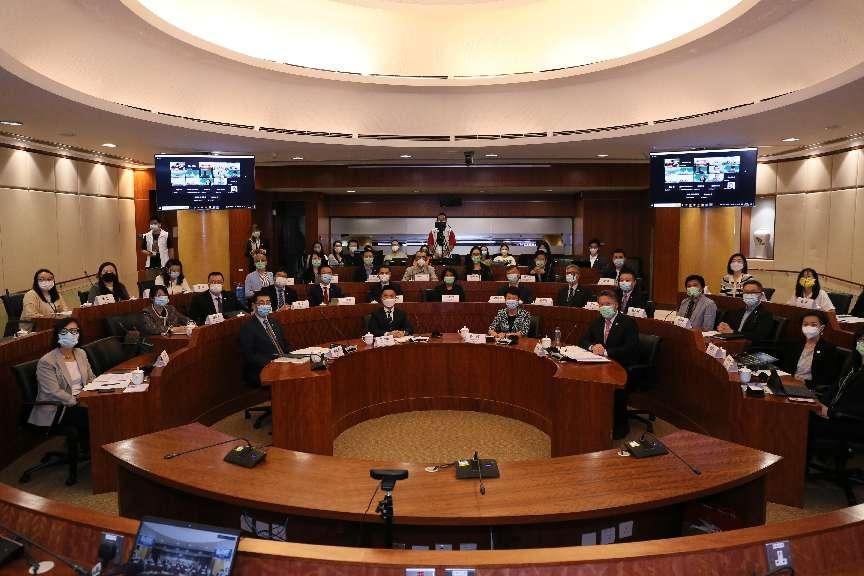

网上报名
